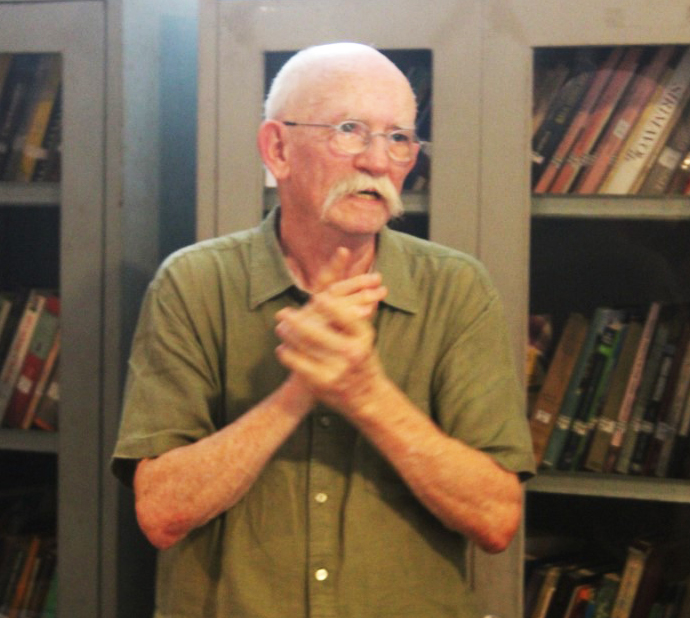Social Scientists’ Association as part of its Critical Agrarian Studies seminar series held its first seminar-discussion titled – “Progressive policies and the state’s local practices: some thoughts on rural contexts in Sri Lanka” on 9th February 2023. The study series focuses on contemporary agrarian political economy, through mapping an agenda for critical agrarian studies in the 21st century. The talk was led by Dr. Urs Geiser, Associate Senior Lecturer at Zurich University’s Department of Geography, Switzerland
Dr. Geiser in his talk presented some thoughts on the subject and touched upon three main aspects; a critic of the notion of peasant, proliferation of state and non-state actors in the agrarian sector, and the need of careful rethinking to strategically approach the grassroots. He opined that the category of peasant in Sri has lost its space in the contemporary critical agrarian studies sphere due to the diversification of dynamics. Due to positive and negative consequences of diversification and the changing role of land as means of production, it requires a methodology that focuses on grassroots conditions. Towards this end, qualitative interviews and carefully selected samples are a requisite and should be given much attention and time.
When it comes to proliferation of state and non-state actors in the agrarian sector, Dr. Geiser observes a striking distinction between Sri Lanka and other South Asian countries. In Sri Lanka more than 80 per cent agrarian land is still under the state control and the prescence of state and non-state actors at the grassroots level is significantly higher as well. He sees this as an outcome of the political and economic processes at the national level shaped by global dynamics. Critical agrarian studies, therefore, should not forget to ask the grassroots level, from the household perspective, to make sense of these processes. As Prof. Geiser observes there has been little research conducted in the spheres of household and local state engineering, which is part and parcel of critical agrarian studies in order to understand relations between society and state.
Focusing on progressive policies, he stated that it is imperative that the policies focus on making the agrarian households focus on making them conscious or acting as a class for themselves. Given that the Sri Lankan agrarian sphere is becoming increasingly complex, diversified with varied interests with households more linked, less-linked or almost de-linked from land, critical agrarian studies demand research that engages with critical approaches as opposed to dominant agrarian studies which are mainly driven by free market-based logics. In the process, it is important to identify what to do, who is engaged and who to be strategically approached.
He concluded that while it is important to revisit earlier critical agrarian studies to learn from them, today’s situations would be significantly different from the context of those studies in the past. Therefore it is important to come up with innovate and timely questions, and also new theoretical conceptions that should not be monolithic but open for multiple perspectives.
Dr. Urs Geiser is an Associate Senior Lecturer at Zurich University’s Department of Geography, Switzerland, and has worked extensively on understanding rural people’s livelihood struggles, different development interventions, and land politics in both Sri Lanka and Pakistan.

